A talented actor with a penchant for playing intense, often troubled young men, Nick Stahl garnered the respect of critics and his peers at a young age with a winning combination of independent and mainstream films. At the age of 14, Stahl made his feature film debut opposite Mel Gibson in the drama "The Man Without a Face" (1993). After a slew of television and theatrical projects, he was appearing in such diverse, high-profile films as the teen thriller "Disturbing Behavior" (1998) and venerated director Terence Malick's war treatise "The Thin Red Line" (1998).
Stahl continued the trend with important roles in the acclaimed drama "In the Bedroom" (2001) and the controversial based-on-fact tale of teen murder, "Bully" (2001). He later followed a starring role in the big-budget action sequel, "Terminator 3: Rise of the Machines" (2003) with the lead on the well-regarded cable series "Carnivale" (HBO, 2003-05). After his disturbing, but memorable supporting role in the hugely popular neo-noir, "Sin City" (2005), Stahl worked steadily in such indie efforts as "How to Rob a Bank" (2008) and "388 Arletta Avenue" (2012). One of the edgier screen performers of his generation, Stahl continually made career choices based on his interest in the content of a project, rather than the size of its budget.
Born on Dec. 5, 1979 in Harlingen, TX, Nicolas Kent Stahl was the youngest of three children born to Donna Lynn and William Kent Stahl, who left the family when Nick was but two years old. When Lynn, a brokerage assistant, took her son to his first play at the age of four, it seemed to instantaneously set the course of his life. Declaring that he wanted to become an actor, Stahl began taking lessons at the nearby Melva Smith School of Dance and before long was picking up roles in stage productions and local television commercials. Spotted by a talent agent, the 12-year-old thespian soon made his primetime acting debut as Robert Urich's son in the thriller "Stranger at My Door" (CBS, 1991) followed by another turn in "Woman with a Past" (NBC, 1992), starring Pamela Reed as a mother attempting to leave her troubled past behind.
A mere three years into his professional career, Stahl's breakout role in his first feature film came when actor-director Mel Gibson cast him as a troubled adolescent who agrees to be tutored by a reclusive, disfigured teacher (Gibson) in "The Man Without a Face" (1993). Now off and running, Stahl was soon seen opposite veteran actors like Susan Sarandon and Sam Shepard in the drama "Safe Passage" (1994). The teenage Stahl excelled in portraying troubled, often victimized youths, as he did in the television projects "Incident in a Small Town" (CBS, 1994) and "Blue River" (Fox, 1995), although the feature "Tall Tale: The Adventures of Pecos Bill" (1995) allowed the actor a rare opportunity to play a more proactive young hero.
In the Southern gothic "Eye of God" (1997), he was well-cast as a teenager who may have witnessed - or participated in - a murder. Alongside fellow rising stars James Marsden and Katie Holmes, he co-starred as a rebellious teen who becomes convinced something is wrong with his seemingly perfect peers in the popular thriller "Disturbing Behavior" (1998).
Also that year, Stahl went on to appear in the all-star ensemble of legendary director Terrence Malick's lyrical adaptation of James Joyce's autobiographical war novel, "The Thin Red Line" (1998). He next portrayed an aspiring musician in the little-seen 1970s comedy, "Sunset Strip"(2000), followed by a substantial role in "The Sleepy Time Gal" (2001), where he portrayed the son of a cancer-stricken writer (Jacqueline Bisset).
The harrowing drama, "In the Bedroom" (2001) cast Stahl as the murdered son of a New England couple (Sissy Spacek and Tom Wilkinson) and earned him nothing but praise from critics. The pundits were far more divided, however, over the actor's next project, "Bully" (2001), director Larry Clark's sordid - some claimed fetishistic - account of a group of amoral Florida teens who plot the demise of Stahl's abusive character. While many took issue with the morally ambiguous tone of Clark's film, which was inspired by actual events, no one could deny that the intense, riveting performance of Stahl made him one of the young stars to watch in the new millennium.
Stahl was next seen in the occult horror film, "Taboo" (2002), prior to appearing alongside Claire Danes and Arnold Schwarzenegger in the sci-fi action-adventure "Terminator 3: Rise of the Machines" (2003). In the big-budget sequel, Stahl took over the role of John Conner, previously played by Edward Furlong, who is once again targeted by an even more advanced Terminator (Kristanna Loken) sent from a future ruled by the sentient computer system Skynet. Stahl then took on his first starring role on an ongoing television series with "Carnivale" (2003-05), a dark fantasy-drama exploring the struggle between good and evil in the Dust Bowl region during the Great Depression.
Stahl was cast as Ben Hawkins, a young man possessed with remarkable healing powers who travels with an eccentric circus troupe. Though critically acclaimed and highly rated during its first season, the stylized, difficult-to-define show soon began to lose its audience. Much to the dismay of Stahl, his fellow cast members and the show's relatively small but fiercely loyal number of fans, the Emmy-winning "Carnivale" was cancelled after its second season.
Stahl rebounded nicely, however, when he landed the choice role of Roark Junior, the sadistic, disfigured titular serial killer in the "That Yellow Bastard" sequence of Robert Rodriguez and co-director Frank Miller's "Sin City" (2005). In the stylized, duotone rendition of Miller's original graphic novel, Stahl was repulsively convincing as a pedophile psychopath ultimately brought to justice by a broken down ex-cop (Bruce Willis).
Stahl followed the success of "Sin City" with a string of smaller, independent films that included the off-beat comedy "The Night of the White Pants" (2006), which reteamed him with Tom Wilkinson. He later joined a cast that included Charlize Theron, Woody Harrelson and AnnaSophia Robb in the coming-of-age drama "Sleepwalking" (2008), then picked up a supporting role in the Renée Zellweger vehicle, "My One and Only" (2009), a fictionalized account of the unconventional childhood of future movie star George Hamilton.
In 2009, Stahl married Rose Murphy, with whom he had a daughter, Marlo, the following year. Film work of this period included a turn as a small-town detective investigating the death of a juvenile in the crime drama "Meskada" (2010), followed by a pairing with rising starlet Olivia Wilde in the thriller "On the Inside" (2011).
Working steadily, albeit in films that saw only limited theatrical or direct-to-DVD release, he also starred as a disillusioned journalist trying to expose war atrocities in "Afghan Luke" (2011). Unfortunately, trouble began to brew for the actor after he and his wife separated in January 2012. The following month, Murphy filed papers for divorce, reportedly also requesting that the amount of time Stahl be allowed to spend with their daughter be limited and that he submit to drug and alcohol testing prior to the scheduled visits.
In May of that year, just days before the release of Stahl's latest film, "388 Arletta Avenue" (2012), a thriller in which he played a young husband tormented by a demented stalker, Murphy reported her estranged husband missing to the LAPD. Last seen in L.A.'s notorious Skid Row district a week prior to the report, authorities speculated that drugs might have been involved in his sudden disappearance. Not long after reports he had gone missing surfaced, Stahl reportedly entered rehab.
By Bryce Coleman

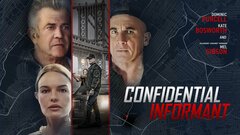


































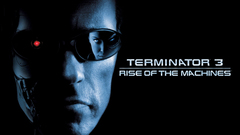




















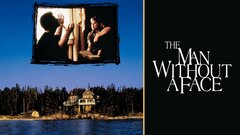


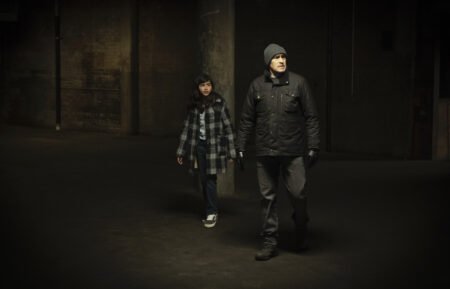
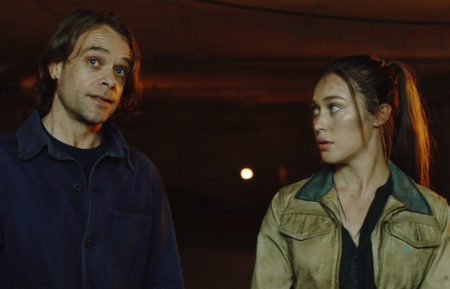


![Nick Stahl attends the premiere of Let The Right One In at ComicCon NY 2022 at the Javits Center in New York, NY on October 7, 2022. (Photo by Stephen Smith/SIPA USA) (Newscom TagID: sipaphotosfourteen676312.jpg) [Photo via Newscom]](https://media.baselineresearch.com/images/2109580/2109580_small.jpg)
![Nick Stahl attends the premiere of Let The Right One In at ComicCon NY 2022 at the Javits Center in New York, NY on October 7, 2022. (Photo by Stephen Smith/SIPA USA) (Newscom TagID: sipaphotosfourteen676320.jpg) [Photo via Newscom]](https://media.baselineresearch.com/images/2109598/2109598_small.jpg)






























































































